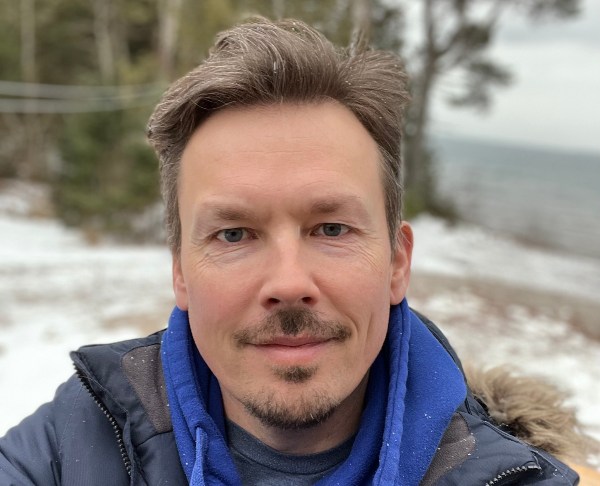
From farm kid to firefighter
Eric Everett battles the flames of social injustice and emergency events.
By Joanne Paulson for JSGSEric Everett began his career in Grade Four, a self-described “farm kid with a helper mentality but no plan.”
He worked on a strawberry farm, minded a rural grocery store, bartended at weddings, spliced phone cables and synthesized organic molecules in a lab.
And he was a volunteer firefighter, which is really where this story begins.
Increasingly, too, the boy from Thunder Bay was observing “socio-economic disparities, the related discourse of working-class resentment . . . and racism.”
Today, you can see where his path was leading: Everett is now Director, Exercises, Education & Training, Emergency Management Ontario. But he gives a lot of credit to Johnson Shoyama Graduate School of Public Policy (JSGS) for helping get him there.
Everett is a graduate of the Joint Master of Governance and Entrepreneurship in Northern and Indigenous Areas (GENI) at JSGS, a program he discovered by accident on the University of Saskatchewan website in 2015. He was already working for the Ontario government and had attained a master’s in public health.
“I was in a little bit of a rut in terms of my career and not sure what to do next,” Everett said.
“I liked some aspects related to my work in Indigenous communities in northern Ontario and had some experiences witnessing conditions on remote reserves that really impacted me. So I was starting to think about how I could have more of a northern and Indigenous focus on my career. I didn’t really know how to get there.”
When he found the GENI program description, he found he liked its multidisciplinary nature and system perspective. “And I thought wow, this sounds like it could be it.”
As timing would have it, it was well past the application date, but he emailed the program co-ordinator anyway.
“We spoke, I shared a little bit about my background, she shared about the program, and the next thing you know she was saying we can accept you into the program.”
With big support from his wife, who told him, “This is you; you need to go back to school,” he took the plunge.
“Within a month or two, I was on a plane to Norway for the initial field school. I went from not even planning to go back to school, to suddenly being on a plane to Europe for the first time in my life.”
GENI combines experiences and classes both from JSGS at USask and UIT, the arctic university of Norway, and makes study available part-time to those who cannot take time off work, like Everett.
“The whole point of the program is to take a comparative look at northern and Indigenous governance around the circumpolar north,” Everett said. “It translates back to my work, and it’s helpful to see how other jurisdictions are tackling the same opportunities and challenges related to the rapidly changing northern world in terms of advancing Indigenous rights, accelerating climate change, increasing resource pressures.”
Everett has participated in the Ontario public service speaker series about his career path, “and I talk about this as a sudden transformative event. When you’re in a rut, it’s important to try something . . . because this course really did turn out to be a transformative experience for me.”
Previously, Everett was a manager of Natural Resources and Forestry and Land Use Planning in Ontario’s far north, then moving to Director of Negotiations in the Ministry of Indigenous Affairs.
“Basically, l led teams to negotiate Indigenous land claims in northern Ontario over three years,” he said. “That was about really putting some of these governance lessons into practice and dealing with fundamental issues of reconciliation.”
In December, he moved to his present job, which involves leading teams who provide emergency management training for such events as wildfires and floods to Ontario government ministries, municipalities and First Nations.
There is also a public education component to his job, requiring an understanding of what messages need to be imparted and getting that information to communities.
“And the third part is exercises — large, simulated emergency scenarios, done with different partners to test the knowledge and find gaps.
“It helps to have my background to think about who do we connect with to co-develop these courses or exercises to help them be more culturally responsive and to look at things through an Indigenous lens.”
Everett also spent years as a volunteer firefighter and first responder for various communities around Thunder Bay, worked with St. John Ambulance and was a Red Cross instructor. Now located in Toronto, he volunteers for GlobalMedic, running vaccine clinics and training to be on their international rapid response team.
And amid his busy life, he keeps up with his cohort of GENI graduates from around the world.
“I made so many good friendships in this course that have lasted,” Everett said. “I regularly keep up with people in the GENI program and from the field schools. Field schools were so valuable to me for making connections as well as learning.”

